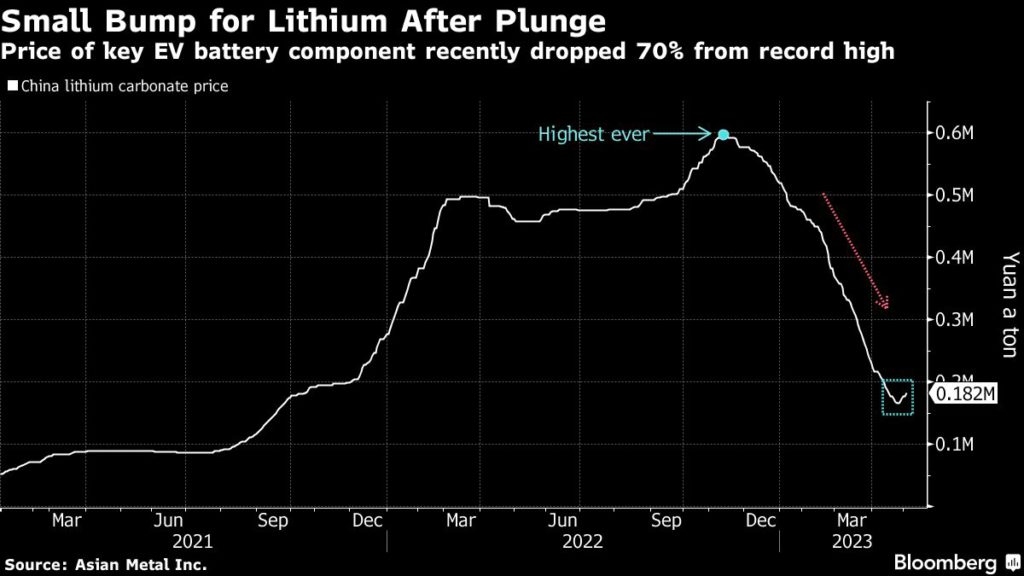Lithium markets have hit a turning point – Morgan Stanley

The lithium market has reached a turning point, at least for now, according to Morgan Stanley.
Lithium carbonate prices in China, which tumbled 70% since hitting a record in November, have rallied in recent days on renewed optimism over EV demand.

“Although China’s EV sales and battery production are back in growth mode after a lacklustre start of the year, cathode and battery cell producers are still not fully back buying in the spot market, but sentiment is clearly improving and their lithium inventories appear to have eroded,” the analysts said in a note on Friday.
“Unlike for nickel and cobalt, we still model a full-year lithium market deficit for 2023, and we expect the recently oversupplied lithium market to become tighter again for the remainder of 2023. We see some upside risk to our 2H23 base case forecast for an average China lithium carbonate price of $25/kg.”
Australian spodumene production fell short of expectations in Q1 2023, with cumulative production at approximately 774,000 tonnes. This is flat compared to the previous quarter.
This was primarily due to lower quarter-on-quarter production from IGO (ASX: IGO) and Pilbara Minerals (ASX: PLS) due to operational issues and planned maintenance.
Morgan Stanley also said Chile’s export growth in Q1 2023 “wasn’t stellar either,” up 5% quarter-on-quarter and 6% year-on-year.
“Therefore we think the market can stay relatively right for 2023, but the shortfall will be much less than last year.”
Lithium stocks were among the strongest performers on Monday. Pilbara Minerals rose 4.6%, Albemarle (NYSE: ALB) was up 3% and SQM (NYSE: SQM) rose 3.6%.
According to BloombergNEF’s New Energy Outlook 2022, demand for the metal will be 16 times the total lithium in use today by 2040, potentially outrunning supply by more than 40%.
“Therefore we think the market can stay relatively right for 2023, but the shortfall will be much less than last year.”
Read More: Brazilian iron ore state wants to lure lithium investors
(With files from Bloomberg)
{{ commodity.name }}
{{ post.title }}
{{ post.date }}




Comments